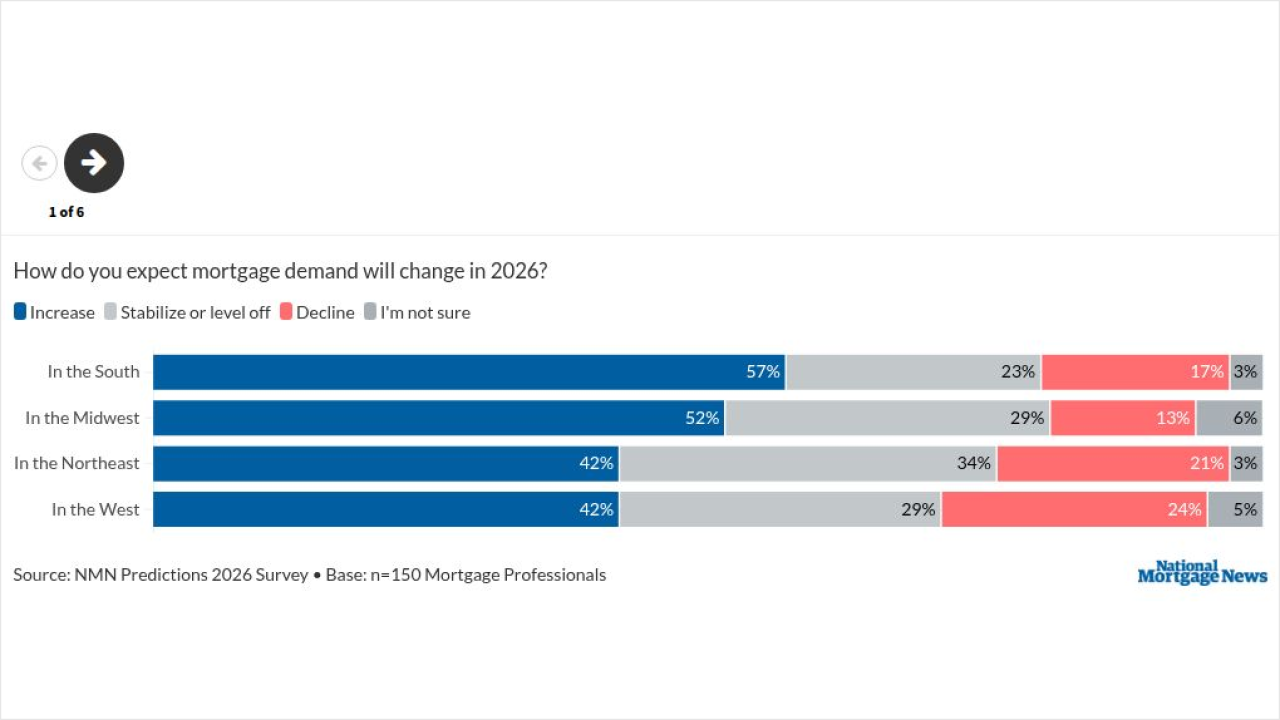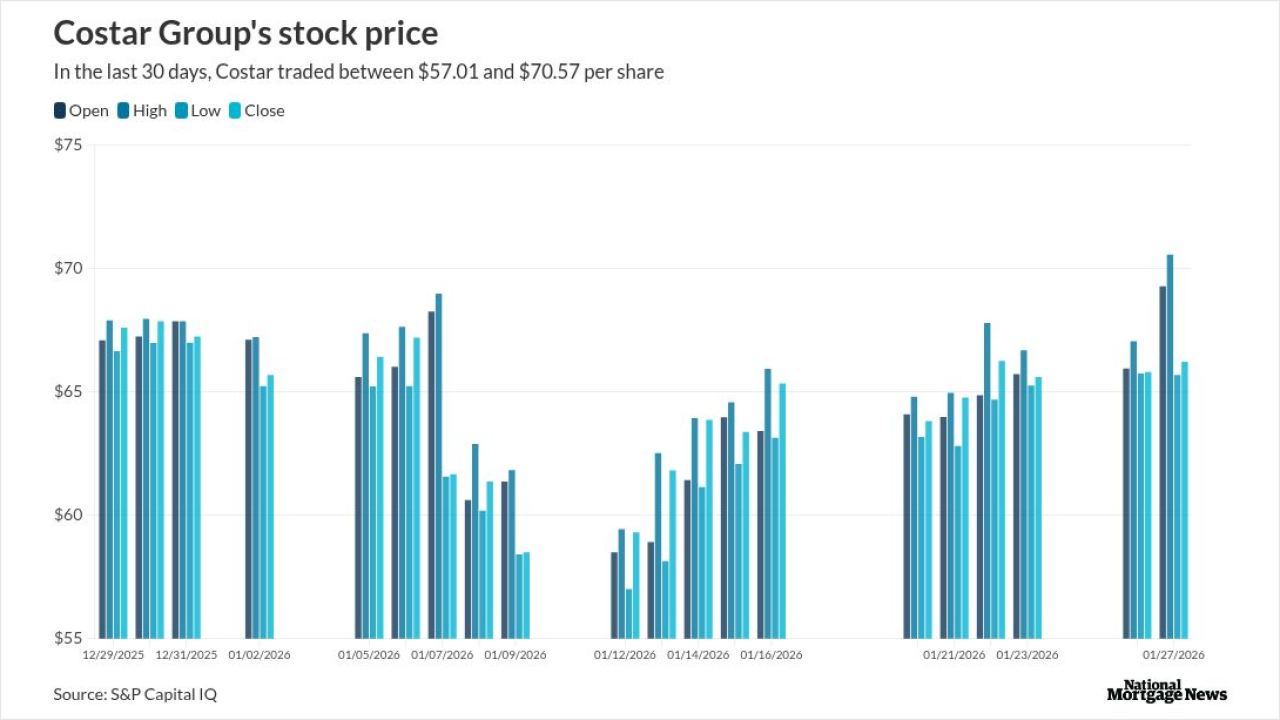Servicing income, certain secondary market gains,
The company earned $129.2 million between April and June, down from $173.6 million in

"As demonstrated by this quarter's strong results, the growth of our servicing portfolio will continue to differentiate PFSI and serve as an important asset while the origination landscape remains competitive and challenging," Chairman and CEO David Spector said in the company's earnings call.
PennyMac Financial Services also reduced expenses by more than $100 million compared to average quarterly levels in 2021, excluding a provision for losses on active loans.
Overall, PennyMac has weathered pressure from a cooling housing market and inflation well; but its exposure to securitized, first-time homebuyer loans that are government-insured but vulnerable to financial pressure is a concern for some analysts.
"The risk is that recession concerns intensify, and weaker housing fundamentals weigh on valuation, particularly considering its portfolio of Ginnie Mae servicing tends to be loans to higher-LTV, lower-FICO, and lower-income borrowers," BTIG said in a report Wednesday.
That said, PennyMac's government-insured loan performance has been relatively strong to date, analysts Eric Hagen and Ethan Saghi noted in the report. Its Federal Housing Administration-insured loans have had a 60+ day delinquency rate of 3.2%, compared to 6+% for the broader market.
Also, the government market has some offsetting upsides, one of which could be an
Other contributions from the government loan sector included early-buyout loans from Ginnie pools, according to analysts from Keefe, Bruyette & Woods,
"Gain on sale income beat us by $0.54, driven primarily by stronger than expected gains from Ginnie Mae EBO loans," Bose George, Michael Smyth, and Thomas McJoynt-Griffith note in a KBW report issued Wednesday.
Other notable developments during the quarter included a $114 million
While PennyMac Financial's results bore up relatively well during the quarter, its real estate investment trust affiliate faced challenges and recorded a net loss of $81.2 million. PennyMac Mortgage Investment Trust took an earnings per share loss of $0.88 that missed consensus analyst estimates for $0.06 in positive EPS.
But market conditions that hurt investment strategies in the second quarter have subsequently improved, Spector said.
"The recent increase in spreads has improved our projected return potential for PMT's investment portfolio going forward," he said during the REIT's earnings call.




